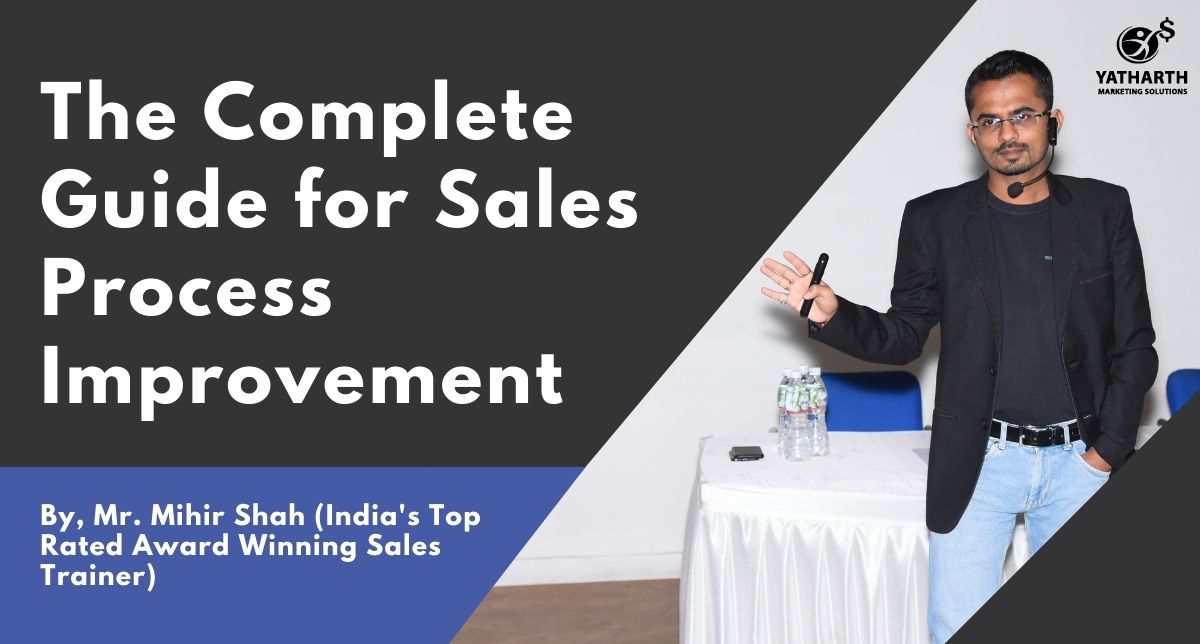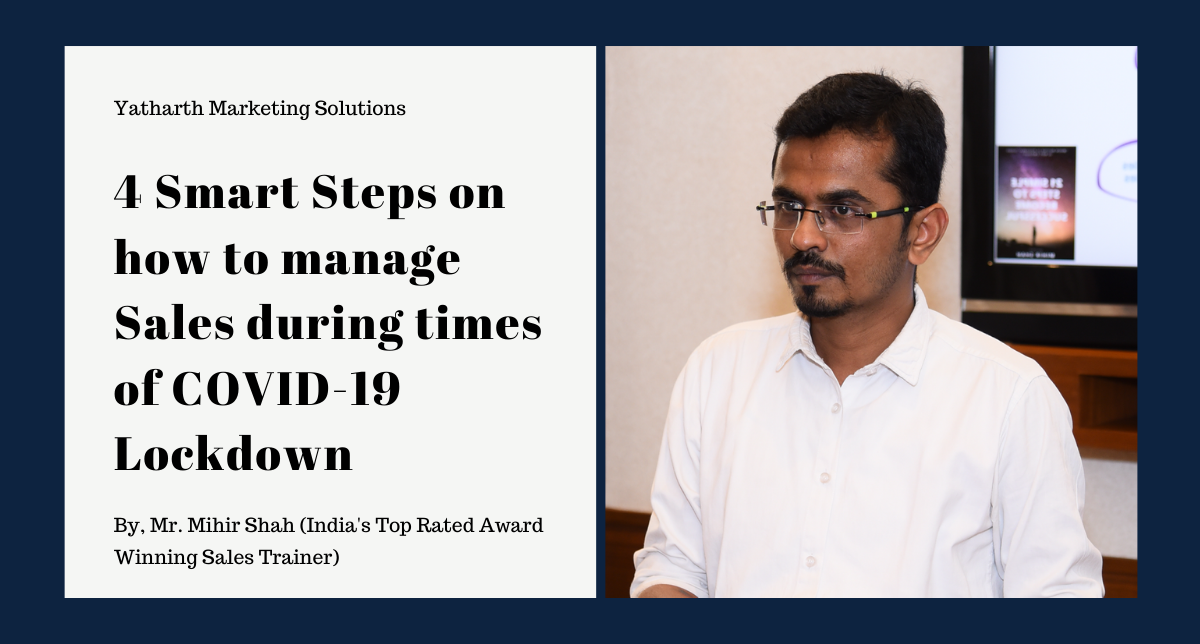Sales processes are crucial in increasing the efficiency and effectiveness of every sales effort
The sales process is a template for achieving sales objectives and for scaling the performance of the sales teams. The end-to-end sales process consists of a series of steps that a seller takes to convert a prospect in an initial stage into a buying customer.
The sad truth is that most sales managers usually lose track of strategy in order to prioritize the number of sales and push individual salespeople to achieve their targets, irrespective of the deviations from their overall strategy.
The major disadvantage is that this approach is not replicable. It becomes a bunch of separate, disunified methods which do not scale with the growth of your organization, and the returns diminish considerably in the long run.
Ideally, your organization’s sales process steps should function like a well-oiled, revenue-generating machine. Though it is a constantly evolving process, it should be built on strong fundamentals that you periodically review and update. Standardizing the sales process makes it more efficient and amplifies the results of your sales efforts. This article will help you understand the steps to improve the sales process in your current setup, or if you don’t have one, create a successful sales process.
What Does a Perfect End-to-End Sales Process Include?
Though different B2B and B2C organizations will need to customize different steps to arrive at the best sales process for their market, it is important to remember the fundamentals:
- Customer-focused: buyers today are a different breed from even a decade ago. Make sure that your sales cycle is suited for this new reality.
- Clear and simple: Your stakeholders, i.e., the management and the individual team members must understand all the aspects of the sales process. There should be no doubt on what has been finalized to ensure everyone adheres to the adoption of each step of the sales process steps.
- Scalable: When a new member joins your sales team, they must be able to follow the steps easily and ensure a seamless scaling of your organization’s sales efforts.
- Result-oriented: There must be well-defined goals that drive the overall strategy of your selling process. Each stage must be optimized to achieve the specific goals of the overall sales development process and the individual stage process.
- Predictable: The reason for having consultative sales process steps is to ensure that you are able to predict the future resource requirements to achieve specific targets.
- Measurable: Without measuring the performance, your sales process is a blind effort towards undefined goals.
- Adaptable: Though the steps must be optimized to create the best sales process for your organization, they must also be flexible enough to adapt to the dynamic business environment you operate in. Otherwise, it becomes a restriction and an obstacle.
The Guide to Improving Your Sales Process
There cannot be a generic sales process for every organization due to the wide number of variable factors involved viz., the market, the buyer, competition, evolving government regulations, etc. Along with the fundamentals mentioned above, here are a few important steps to improve the sales process:
Review Existing Sales Processes:
The answers to the following questions will give you a realistic, defined view of your current sales processes and the entire sales cycle:
- How does your organization generate leads?
- What strategies do you employ to engage the leads?
- How do you convert potential leads into customers?
- Do you have a structured method to onboard new customers?
- Have you documented your ideal customer’s personal, their behavior in different stages, motivations, etc.?
Each of the responses must be supplemented with the metrics wherever possible. The goal is to ensure that the strategic sales processes are measured and improved wherever possible on the basis of data.
It is important to leverage data since it maximizes the probability of success in your sales efforts.
Usually, a CRM plays a crucial role in collecting and analyzing all the data. So, if you aren’t employing one, make that the first item on the agenda but, remember that just data will not be of as much use if you do not have an expert to help you take advantage.
At the end of the day, your sales team functions as well as the individual members. With a record of performance and improvement, they will be better motivated to work towards their goals and achieve targets.
Create a Customized Sales Process Improvement Strategy:
You can start with the goals you want to achieve or focus on maximizing the returns on your current resources. It is best to put down all of these on paper so you can make informed decisions on finalizing your sales process improvement strategy.
Identify Major Obstacles or Problem Areas:
A clear sales development process will require individual attention to different problems, such as very few leads or fewer conversions as compared to the industry standard.
You don’t need to overhaul the entire process unless you have tried making the improvements first and haven’t succeeded. As mentioned before, let the data lead your decisions. If you are not yet doing so, finalize the KPIs that will give you the best view of your data, and examine them to monitor the success of your sales process.
Innovation as an Integral Component:
No matter how successful sales processes are, they can be bettered to improve the performance of your resources and amplify the results. This is why we mentioned flexibility earlier – you must leverage any change in the market, or in the tools, you employ to ensure maximum benefits
Studying your target audience will provide the key insights on which you can base your decisions to refine your sales cycle. Please remember that the focus should be on the results, and not on the process itself. The process can evolve and adapt to suit the requirements of your strategy, whether it is to boost revenues or increase your customer base.
Conclusion:
When it comes to the best sales process or a guide to improving the sales process, there is no one-size-fits-all method. The sales development process and each step of the process are all in service of achieving clearly defined goals that drive the strategy and efforts of the entire organization. We have shared the fundamentals of understanding what a sales process is, and how you can improve your existing processes. If you would like to discuss further or understand the concept better, we would be happy to talk to you!


